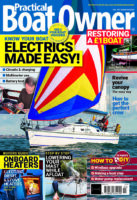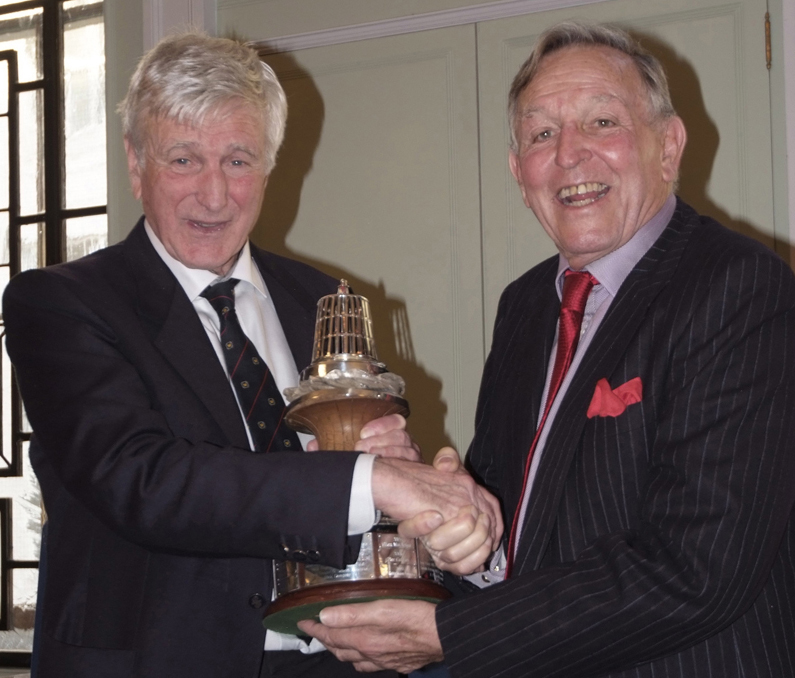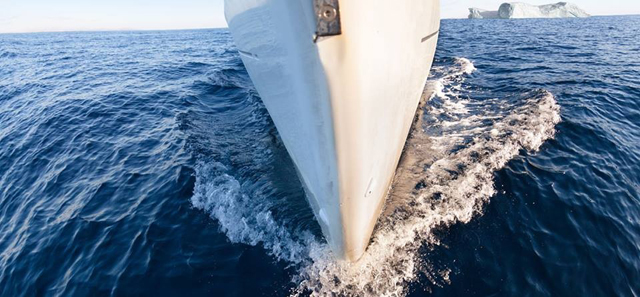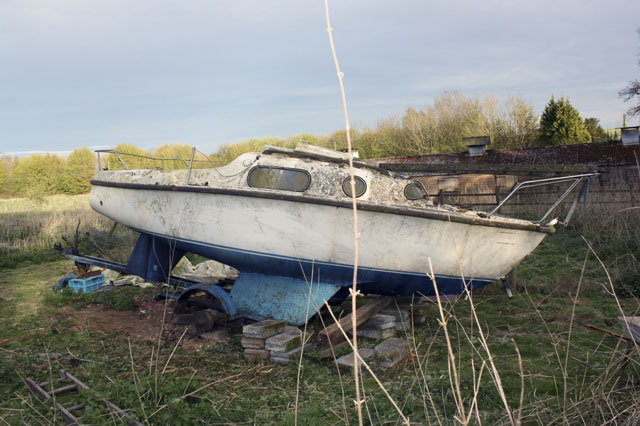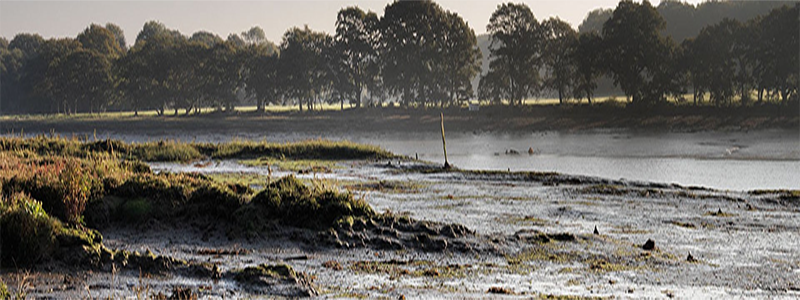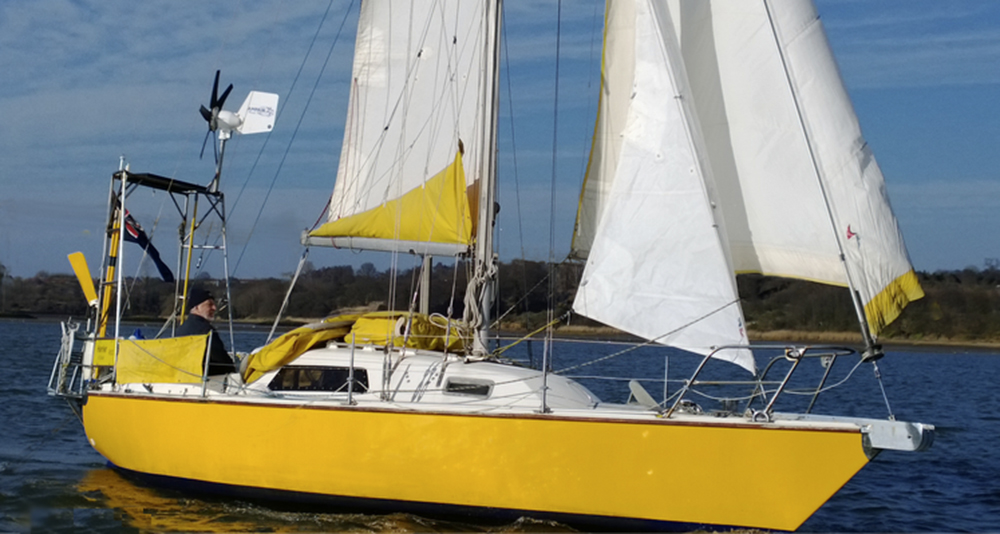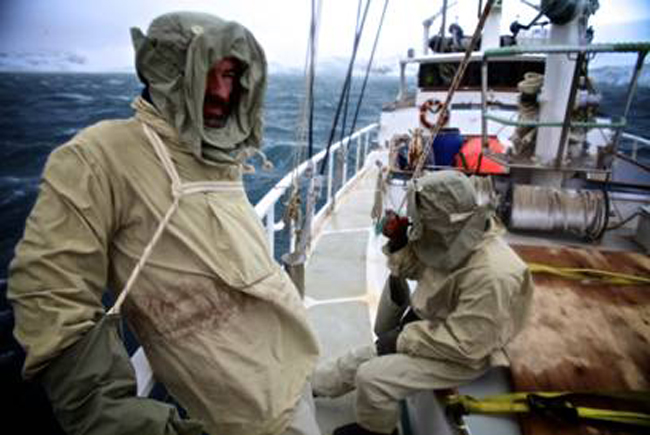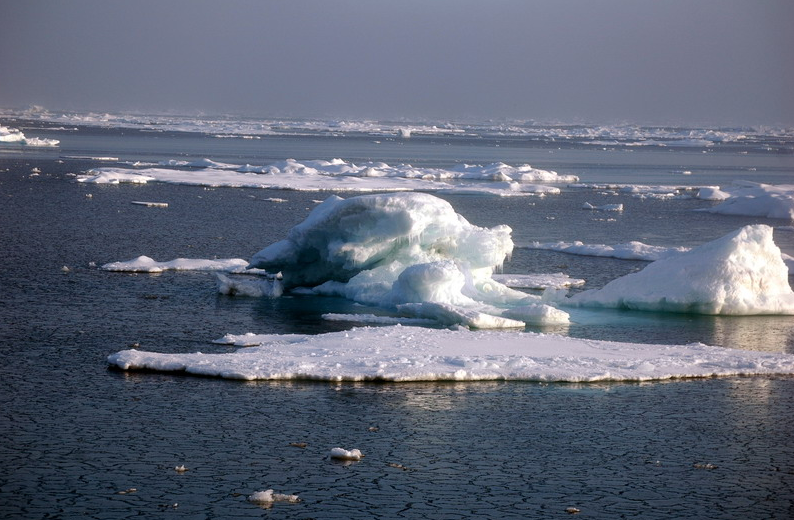The Polar Ocean Challenge crew received a heroes’ welcome when they returned to Bristol Harbour, following their successful circumnavigation of the North Pole.
The expedition, led by British adventurer David Hempleman-Adams and skippered by Russian Captain Nickolai Litau, with a seven-person crew, took place in the 15.2m (50ft) aluminium sailing boat Northabout, following four years of preparation.
The crew spent 18 weeks at sea between 19 June and 20 October 2016, reached a latitude of 78 degrees and travelled 13,500 miles through five countries.
The expedition’s purpose was to draw attention to the progressive recession of sea ice in the summer due to climatic changes in the Arctic, , and the issues born out of this changing Arctic landscape. Two areas used to remain icebound throughout the summer, the ‘NE passage’ (Russia) and the ‘NW passage’ (Canada’s Nunavut territory), but are now melting during this period – raising huge concerns over global warming.

Polar Ocean Challenge yacht Northabout
David said: ”On 19 June 2016, we left Bristol in our boat Northabout to circumnavigate the North Pole anticlockwise. By doing this we have demonstrated that the Arctic sea ice coverage shrinks back so far now in the summer months, that sea that was permanently locked up now can allow passage through.
‘Permanent irreversible change in the sea ice landscape of the Arctic seems inevitable. This will/is already having global economic political, social and environmental implications. A significant change in my lifetime.
‘I see this possibility to circumnavigate the Arctic as one I wanted to take despite the risks associated with it in order to increase the world’s attention on the effects of Arctic climate change.’
This highlights an extraordinary loss of sea ice in the Arctic in the 30 years that David Hempleman-Adams has been visiting the area.
He added: ‘Whilst we are all delighted to have succeeded, it is extremely worrying to see this lack of ice so starkly.’
Scientists expect commercial traffic in the NEP and NWP to grow in the coming decades as the region continues to warm.
David highlighted the need to ‘navigate the future of the Arctic responsibly’: ‘The lives of people living in the normally year-round icebound communities will change drastically, as will the habitats of walruses, whales, seals, polar bears, the whole ecosystems within the sea. We can try to make sure that this change is handled carefully, sustainably, responsibly.’
David has launched a new charity called Wicked Weather Watch to let young people (primary schools), know about climate change and inspire them to take action. Schools and individuals can sign up via the website wickedweatherwatch.org.uk to learn more about climate change and how we can all make a difference.
Read the expedition logs at www.polarocean.co.uk
Arctic explorer, 79, named Yachtsman of the Year 2013
The Rev Bob Shepton claimed the top prize at the YJA Apollo Yachtsman of the Year awards, while disabled teenager…
Sailing The Arctic Race
Sailing The Arctic Race (STAR) is heading north in 2017, taking a fleet of international sailors through the Northwest Passage
Leisure 17: Rescued from the nettles
John MacKenzie finds himself renovating a war veteran’s Leisure 17 that had resided among chest-high nettles in a field in…
Historic Henry V shipwreck found in Hamble River
Historic England is taking steps to protect and investigate a shipwreck in Hampshire that is believed to be the second…
Yachtsman Julian Mustoe: “I’m distressed about losing my boat”
"Just about everything I owned is now at the bottom of the North Sea" says yachtsman Julian Mustoe.
Boat solar panels: Everything you need to know to get started
Want to add solar panels to your boat, or wonder how to make the most of those you already have?…
5 top causes of boat engine failure – and how to avoid them
Jake Kavanagh talks to Sea Start marine engineer Nick Eales about how to avoid the five major causes of an…
Testing times on the Atlantic Rally for Cruisers (ARC)
Laura Hodgetts talks to the skippers of 20 boats on the Atlantic Rally for Cruisers (ARC), ‘the biggest downwind gear…
How to sail to Australia from the UK in a small boat
Kate and Jonny Harrison dreamed of a round-the-world backpacking tour to Australia – but then their plans took a nautical
Shackleton Epic crew begin final sea trials in Antarctica
Official centenary expedition due to depart on 20 January from Elephant Island
French skipper and pet hen complete gruelling Northwest Passage
After 32 days, 3400 miles (6000 km) struggling against the cold, hunger, and fatigue, French skipper Guirec Soudée and his…
Pensioner is first Brit to sail around Arctic Circle
Grandfather returns home after epic voyage
Yacht crew saved by British Antarctic Survey ship
Four people and a cat rescued off Cape Verdes
Russian yacht completes Arctic circumnavigation
Peter the First sails 9023 miles in the Arctic

